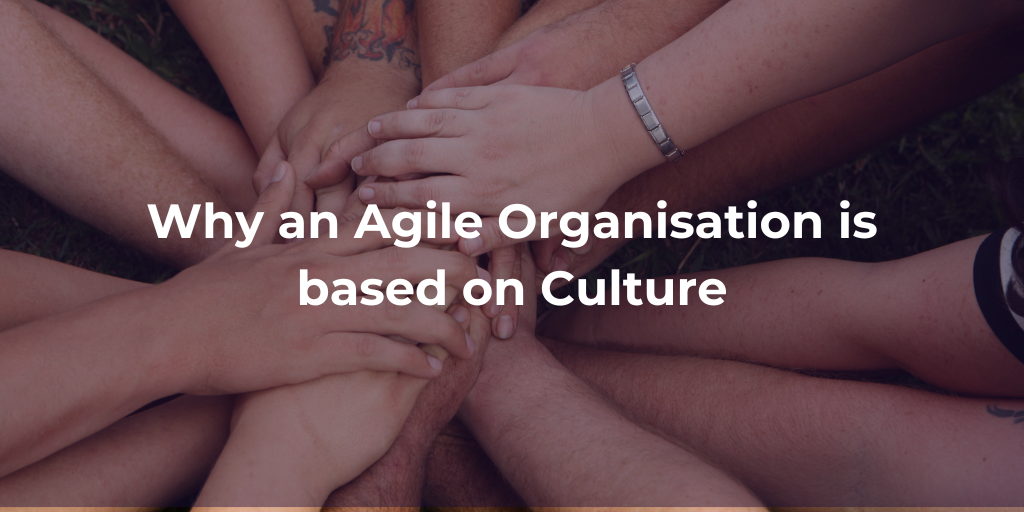Categories
Tags
Newsletter
Subscribe to the QRP International neswletter and get all the news on trends, useful contents and invitations to our upcoming events
Subscribe
In today’s world, the concept of business agility is becoming more popular. Professionals and organisations need to respond to rapid changes while staying ahead of the competitive curve. How can you be part of this continuous agile evolution, or even more: come to learn the importance of an agile mindset.
For this occasion we have interviewed Richard Campbell from Agile Business Consortium, who advocates that fostering an agile culture is the basis for any professional or organisation before becoming “truly agile”.
Within the Agile Business Consortium, I am responsible for the development and delivery of our portfolio of knowledge products that advance business agility. Our products help organisations respond more effectively to the complex and volatile world in which we operate. As the professional body for business agility, our products combine with continuous professional development to help individuals grow their competence in the application of agile principles.
I have spent my career working in the advanced technology sector, in a mix of commercial and product management roles in communications, defence, finance and transportation sectors, serving customers throughout the world. My career has pretty much tracked the development of agility, as in the different organisations I have worked for, we sought to deliver business solutions faster, with fewer resources, that delivered more value to customers.
Increasingly, the problem domains in which we operate are complex and rapidly changing, so the old methods of working were simply not viable. Agility was born from those material conditions, recognising that we need to leverage the collaborative and motivated minds of greater numbers of people to build the right solutions.
Agility is about people, the creative, diverse, emotional brilliance of people, working together. This is what inspires me.
Agility is about being adaptable, which is one of the reasons that the human race has been so successful. We have the ability to observe, make sense of our environment, experiment and respond. We look at reality, we employ our imaginations to see a way forward, we play, or experiment, see what works and what does not, and we take action. Agility encourages us to continue learning in this way, so you never get there but you do make progress.
We use the term agile to describe those attributes, that develop the right culture, encourage us to continue to learn and collaborate, ultimately to recognise that as a team we will thrive far more than even the most brilliant individual.
We are talking here about our productive capacity, our ability to organise the production of products and services that people need and want. We have been doing this in a scientific, measured manner for centuries, and without the lessons learned from the brilliance of previous generations there would be no agile today. Everything builds on the sweat and tears of previous generations.
Many of the ideas for organising our productive capacity prior to agile, continue and will continue to work. When we build a bridge, we lean heavily on the architectural, engineering and mathematics developed over decades. How we organise the logistics of people, materials, machinery and learning, however, can gain significantly from agility, so in that regard they complement each other perfectly. Wisdom is about knowing what approach to apply where.
What is the source of sustainable competitive advantage for any business, government, society or family? It lies in the ability to harness the creative adaptive capabilities of people, lots of people. We need ways of working that support collaboration, where people feel valued and fulfilled. We need to get away from exploiting workers, into inspiring brilliance, which is a cultural change. The most creative and adaptable minds will want to work for organisations with the right culture. Those who do not adapt will perish. It is a short term attitude to ignore agility.
Resilience and motivation are cornerstone elements of Business Agility, essential for navigating the volatile and uncertain landscape of the modern world. Resilience empowers organisations and their people to withstand challenges, adapt to change, and recover swiftly from setbacks, ensuring continuous improvement and innovation.
Motivation drives the commitment to agile transformation, fuels continuous learning, and enhances customer-centric efforts. Together, they foster an environment where agile practices thrive, teams remain focused and adaptive, and businesses can swiftly respond to market changes and customer needs. In essence, resilience and motivation are the lifeblood of an agile, forward-moving organisation.
Culture, or more specifically what we call an agile culture, has been a common thread throughout this interview. We need to bring out the best of our people if we are to thrive, and tackle the small and complex up to the vast and intractable challenges we face. This cannot be a façade, some temporary initiative, but a long term sustained focus on developing collaborative and motivated teams.
As Peter Drucker said “culture eats strategy for breakfast”.
I do lean heavily on agile principles in my daily life. I tackle the most important, high value items first, breaking them down into small manageable tasks, and learning from the experience, replanning and celebrating small victories. This avoids procrastination and demonstrates leadership to others.
I have applied these principles to getting fit and healthy. The lock-down period and the change to working from home had set back my general state of health, physically and emotionally. I started by eating better, going to bed earlier, reading to relax my mind and then daily yoga. This formed the foundations that got me back to running, cycling, windsurfing and snowboarding. A number of small changes combined to bring about a fundamental change in the quality of my life.
Would you like to learn more about Agile Culture within your organisation? Download our Agile Culture DNA infographic!
 Richard Campbell is a Director and Product Engagement Lead at Agile Business Consortium. To deliver on their mission to advance business agility worldwide, ABC develops and offers a range of knowledge products for agile practitioners and professionals. Richard’s focus is building engagement with those using or potentially using our knowledge products to understand the challenges and opportunities to which we must respond. He seeks to understand what we can do to facilitate the adoption of agile principles to both improve delivery and the human experience when applying business agility. Richard’s passion for agility translates to his life outside of work as a sustainable, ecological house self-builder, and advocate for social justice.
Richard Campbell is a Director and Product Engagement Lead at Agile Business Consortium. To deliver on their mission to advance business agility worldwide, ABC develops and offers a range of knowledge products for agile practitioners and professionals. Richard’s focus is building engagement with those using or potentially using our knowledge products to understand the challenges and opportunities to which we must respond. He seeks to understand what we can do to facilitate the adoption of agile principles to both improve delivery and the human experience when applying business agility. Richard’s passion for agility translates to his life outside of work as a sustainable, ecological house self-builder, and advocate for social justice.